Introduction to Off-Page SEO and its Importance

In today’s competitive internet world, simply producing #quality_content is not enough to be seen.
One of the main pillars of Search Engine Optimization (SEO) is #Off_Page_SEO.
Off-Page SEO refers to a set of activities performed outside your website, with the main goal of improving your site’s ranking in search results.
These activities primarily include building high-quality backlinks, increasing domain authority, and improving your brand’s #online_reputation.
The importance of Off-Page SEO lies in the fact that search engines like Google judge your website based on its credibility and popularity in the eyes of other websites and users.
A site with strong backlinks and credible references from other sources sends more positive signals to Google, indicating that its content is valuable and trustworthy.
Without focusing on this vital aspect of optimization, even the best On-Page SEO cannot bring your site to the top of search results.
In fact, Off-Page SEO is a powerful complement to On-Page SEO, and together they form a comprehensive SEO strategy.
In this guide, we will professionally and instructively delve into various aspects of Off-Page SEO and describe practical steps for its implementation.
This topic is an important educational path for any webmaster looking to increase their website’s traffic and visibility online.
Does your company’s website perform as befits your brand? In today’s competitive world, your website is your most important online tool. Rasaweb, a specialist in professional corporate website design, helps you to:
✅ Gain customer credibility and trust
✅ Convert website visitors into customers
⚡ Get a free consultation!
The Difference Between On-Page and Off-Page SEO

To better understand the concept of Off-Page SEO, it’s essential to first know its key differences from On-Page SEO.
On-Page SEO refers to all the actions you take within your website to improve its ranking in search engines.
These actions include keyword optimization, URL structure, title tags and meta descriptions, site loading speed, image optimization, and content structure.
The goal of On-Page SEO is to create an efficient website relevant to #keywords that is understandable and accessible to both users and search engine bots.
In contrast, Off-Page SEO, as its name suggests, refers to activities performed outside your website.
The main pillar of this strategy is acquiring backlinks from other reputable websites.
In addition to backlinks, Off-Page SEO includes activities such as social media engagement, brand mentions, and signals related to online credibility and reputation.
The fundamental difference between the two lies in where the actions are performed. On-Page SEO focuses on your direct control over the site’s content and structure, while Off-Page SEO addresses the level of credibility and trust other sources have in your site.
Both aspects are essential for a comprehensive and successful SEO strategy; Off-Site optimization alone or On-Site alone cannot guarantee complete success.
In fact, search engines consider a combination of these signals for ranking websites.
The Role of Backlinks in Off-Page SEO and Their Types
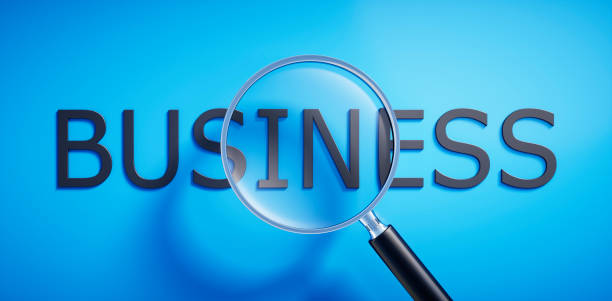
Backlinks, or incoming links, are considered the backbone of any successful Off-Page SEO strategy.
Google and other search engines regard backlinks as votes of confidence from other websites.
The more numerous and higher quality the backlinks pointing to your site, the more credible and authoritative search engines consider your site to be.
However, not all backlinks are created equal.
Backlink quality is far more important than quantity. A backlink from a reputable site with high authority (such as a large news site or a university) is worth much more than dozens of backlinks from spammy or irrelevant sites.
There are different types of backlinks, each of which can have a different impact on your SEO:
| Backlink Type | Description | Importance in Off-Page SEO |
|---|---|---|
| Natural Backlinks (Editorial Links) | Links given naturally and without request, due to the quality of your content. | Highest value, sign of content quality. |
| Guest Post Backlinks (Guest Post Links) | Links obtained by writing articles for other sites and including a link to your own site. | Valuable, with anchor text control capability. |
| Broken Links (Broken Link Building) | Finding broken links on other sites and suggesting your own relevant content as a replacement. | An effective and ethical way to acquire links. |
| Profile/Directory Links (Directory/Profile Links) | Links from web directories or online profiles. | Less valuable, but can help diversify the link profile. |
Focusing on acquiring high-quality and relevant backlinks is the most fundamental part of an Off-page SEO strategy.
This is a specialized discussion in the field of Off-Page SEO that requires precise analysis and strategic planning.
Effective Link Building Strategies for Off-Page SEO

Link building is both an art and a science, and for a successful Off-Page SEO strategy, you must act intelligently and ethically.
Buying backlinks or using spammy methods (like PBNs) can lead to severe Google penalties and a drastic drop in your site’s ranking.
Instead, you should focus on strategies that naturally and with added value lead to acquiring high-quality backlinks.
One of the most effective methods is producing unique and valuable content.
Content that provides in-depth information, original research, or comprehensive guides is naturally referenced by other websites as a source.
This content can include infographics, research reports, free tools, or even interactive content.
Another method is Guest Blogging on relevant and reputable sites.
By writing high-quality articles for other blogs in your industry, you can create a natural link to your site while simultaneously boosting your credibility as an expert.
Additionally, the Broken Link Building strategy is an intelligent approach.
In this method, you find broken links on other websites and suggest to the site owners that your relevant and updated content replace that broken link.
This is a win-win situation; they fix a broken link, and you gain a valuable backlink.
Participating in discussions and forums related to your industry and providing helpful answers with links to credible sources (which can include your site) can also indirectly help improve your Off-Page SEO.
These strategies are all practical guidelines for strengthening your Off-Site optimization.
Did you know that 85% of customers check your company’s website before any interaction?
With Rasaweb, build a corporate website that befits your reputation.
✅ Increase customer credibility and trust
✅ Attract high-quality leads
⚡ Get a free website design consultation
Introduction to Social Signals and Their Importance in Off-Page SEO
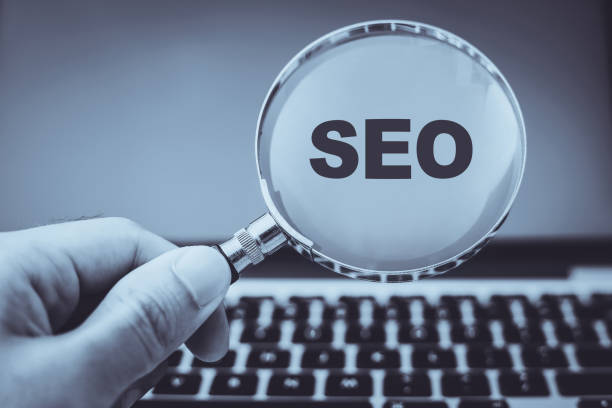
Alongside backlinks, social signals play a significant role in the Off-Page SEO strategy.
Although Google has not directly stated that likes, shares, or followers directly impact rankings, a strong presence on social media can indirectly help your SEO.
When your content is shared on platforms like Instagram, Twitter, LinkedIn, or Facebook and receives high engagement (likes, comments, shares), this can lead to an increase in direct traffic to your website.
Increased traffic and content visibility, in turn, increase the likelihood of it being seen and linked to by other websites.
Furthermore, social media activity helps to increase brand awareness.
The more recognized and popular your brand is, the higher the likelihood of users directly searching for it on Google, which is a positive signal for search engines.
Social signals, in a way, indicate the popularity and virality of your content. When content is heavily shared on social media, it indicates that it is valuable and well-received by users.
This can lead to attracting natural backlinks and increasing your domain authority.
Therefore, although these signals may not have a direct impact on ranking, they are very important and complementary as an integral part of a comprehensive Off-Site optimization strategy.
This topic is an analytical part of Off-Page SEO that shows how different elements work together.
The Importance of Brand Mentions and Enhancing Online Reputation in Off-Page SEO

In the discussion of Off-Page SEO, beyond backlinks and social signals, Brand Mentions are also of particular importance.
A brand mention refers to any reference to your brand name, website, or products/services in the online space, even if it’s not accompanied by a link.
Search engines have become increasingly smarter and can understand semantic connections between entities.
Therefore, when your brand name is mentioned in news articles, blogs, forums, or even in print and television media (which are reported online), this is a positive signal for Google.
These mentions indicate that your brand is recognized and discussed within its industry.
This helps increase your brand’s credibility and Authority. For example, a news article that mentions your product or service, even without a direct link, still signals to search engines that your brand is credible.
Enhancing online reputation through Public Relations (PR) and off-site activities is part of this strategy.
By issuing press releases, collaborating with influencers, or participating in industry events, you can further promote your brand name in the online space.
These activities indirectly lead to an increase in brand searches, direct traffic, and ultimately, an improvement in your site’s search engine ranking.
This aspect of Off-Page SEO has a journalistic and analytical nature and shows how activities outside the traditional SEO framework can also help your visibility.
Off-Page SEO is not limited to link building; rather, it encompasses all dimensions of your online presence and reputation.
How to Measure Your Off-Page SEO Performance?

After implementing Off-Page SEO strategies, the important question is: how can we measure the success of these efforts? Measuring off-site optimization performance requires using various tools and metrics.
The most important metrics include the following:
| Measurement Metric | Explanation | Related Tools |
|---|---|---|
| Number and Quality of Backlinks | Reviewing the number of new links and also the quality (Domain Authority / Page Authority) of linking sites. | Ahrefs, Semrush, Moz Link Explorer |
| Domain Authority/Rating | A score that indicates the overall credibility and strength of your domain. | Moz, Ahrefs (DR), Semrush (AS) |
| Organic Traffic and Keyword Ranking | Increase in traffic from search engines and improvement in the position of important keywords. | Google Analytics, Google Search Console, Semrush, Ahrefs |
| Brand Mentions | The number of times your brand name has been mentioned online without a link. | Google Alerts, BrandMentions |
| Social Signals | The amount of sharing, likes, and comments on your content across social media. | Social media analysis tools |
Regular use of these tools and monitoring these metrics helps you evaluate the effectiveness of your off-site optimization strategy and make necessary changes as needed.
Data analysis is a vital part of Off-Page SEO that gives you a comprehensive view of your performance.
Off-Page SEO and Controversial or Viral Content
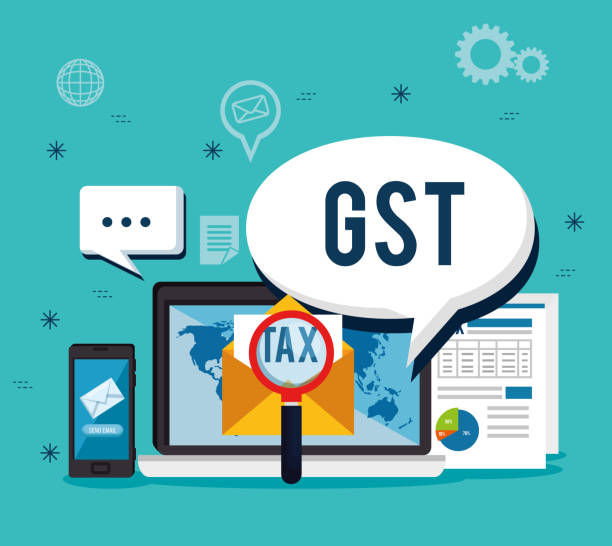
One of the most appealing yet challenging aspects of Off-Page SEO is the ability to create content that naturally goes viral or raises important questions that lead to widespread discussion.
Thought-provoking content is content that engages the audience’s mind, makes them think, and sometimes even challenges them.
Due to its engaging nature, this type of content has high potential for sharing on social media, linking from blogs and news sites, and generating online discussions.
To create such content, you need to conduct in-depth research and address topics that few have covered or offer a new perspective on a common issue.
This can include:
- Research reports with fresh and interesting data.
- Predictive analyses about future trends.
- Controversial articles that challenge common concepts.
- Informative infographics with shocking statistics.
- Unexpected success or failure stories.
Entertaining content can also be surprisingly effective in Off-Page SEO. A humorous video, podcast, or article addressing a topic related to your industry can quickly spread among users and lead to natural backlink acquisition and increased brand mentions.
The goal is to produce content that people spontaneously want to share and refer to because they find it useful, informative, or very interesting.
This approach is a creative yet analytical aspect of Off-Page SEO that requires a deep understanding of audience psychology and current trends.
Are you dissatisfied with the low conversion rate of visitors to customers on your e-commerce site?
Solve this problem forever with professional e-commerce website design by Rasaweb!
✅ Increase visitor-to-customer conversion rate
✅ Create excellent user experience and gain customer trust
⚡ Get a free consultation
Common Challenges and Mistakes in Off-Page SEO
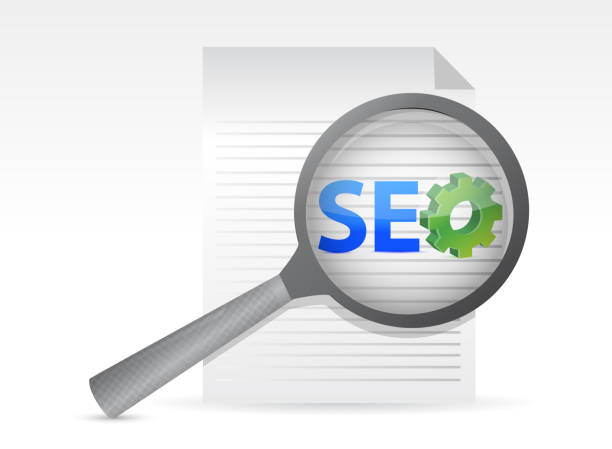
Like any other aspect of SEO, Off-Page SEO also comes with common challenges and mistakes that can render your efforts fruitless or even harm your site’s ranking.
One of the biggest mistakes is focusing solely on the quantity of backlinks instead of their quality. Acquiring thousands of backlinks from low-authority, spammy, or irrelevant sites not only doesn’t help but can also lead to Google penalties (such as the Penguin algorithm penalty).
Search engines look for natural and relevant links, not links created artificially with the aim of manipulating rankings.
Another common mistake is over-optimizing a specific anchor text.
If all your backlinks use a specific keyword as anchor text, this can be a negative signal to Google and be considered an attempt to manipulate rankings.
Your link profile should be natural and diverse, including various anchor texts (brand name, naked URL, keywords, general phrases).
Lack of regular backlink monitoring is also a challenge.
You might lose valuable backlinks (due to removal by the linking site) or receive spammy and harmful backlinks that need to be disavowed.
Ignoring social signals and brand mentions is also a mistake.
Although they have less direct impact, in the long run, they significantly contribute to your brand’s credibility and reputation.
Ignoring Off-Page SEO in favor of On-Page SEO is also a major error; these two should go hand in hand.
These educational and specialized tips help you avoid common pitfalls in off-site optimization and pursue a path of sustainable growth.
The Future of Off-Page SEO and Upcoming Trends
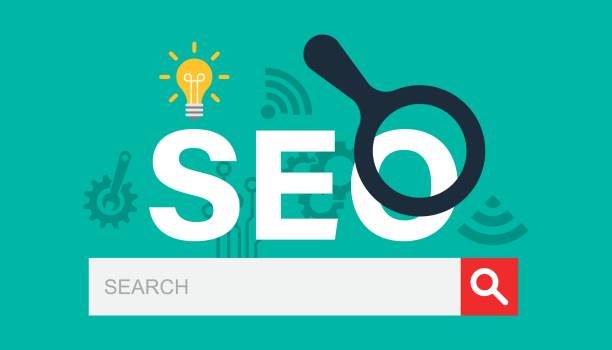
The world of SEO is constantly changing, and Off-Page SEO is no exception.
Google’s algorithms are continuously evolving to improve user experience and make search results more accurate and relevant.
In the future, it can be expected that the emphasis on the quality and relevance of backlinks will increase even further.
Google is becoming smarter at distinguishing between natural and unnatural links, so strategies based on added value and true content relevance will endure.
The importance of branding and online reputation will also increase in the future.
Search engines are looking for brands that are trusted by users and have an active and positive online presence.
This includes brand mentions, positive reviews, and social interactions.
For this reason, investing in digital public relations and building a strong brand will become one of the main pillars of Off-Page SEO.
Additionally, interactive and viral content that naturally attracts backlinks and shares will play a more prominent role.
The evolution of artificial intelligence in search engines means a deeper understanding of content and its context.
This means that it’s not just the number of links that matters, but how those links relate to your content and the credibility of the linking source will be more vital. Ultimately, the future of Off-Page SEO hinges on creating a healthy and natural online ecosystem for your website.
These trends provide a news analysis of the future landscape of off-site optimization and indicate that focusing on quality, credibility, and real value will be the main path to long-term success.
Frequently Asked Questions
| Row | Question | Answer |
|---|---|---|
| 1 | What is Off-Page SEO? | Off-Page SEO refers to a set of actions performed outside your website to improve its ranking in search engines. These actions include backlink building, social media presence, branding, and so on. |
| 2 | Why is Off-Page SEO highly important? | Off-Page SEO shows search engines that your website is credible, popular, and trustworthy. High-quality backlinks from reputable sites are strong signals for better ranking and help increase your domain authority. |
| 3 | What are the most important components of Off-Page SEO? | The most important components of Off-Page SEO include: Link Building, Content Marketing, Social Media Marketing, Influencer Marketing, and Online Reputation Management. |
| 4 | What is a backlink and why is it important for Off-Page SEO? | A backlink is a link from another website pointing to your website. These links act as “votes of confidence” in Google’s eyes and indicate the credibility of your content. The higher the number and quality of backlinks, the better your site’s ranking will be. |
| 5 | What are the types of backlinks in terms of SEO impact? | The two main types of backlinks include DoFollow and NoFollow. DoFollow backlinks pass authority (Link Juice) and directly impact ranking. NoFollow links do not pass authority but can still generate traffic and help make the link profile appear natural. (Also UGC and Sponsored) |
| 6 | How can one create high-quality backlinks for their site? | To build high-quality backlinks, one can use methods such as: producing excellent and shareable content, guest posting on relevant and reputable sites, broken link building, Digital PR, and competitor backlink analysis. |
| 7 | What are toxic backlinks and how do they affect a site? | Toxic or spam backlinks are links from low-quality, spammy, or irrelevant websites pointing to your site. These backlinks can harm your site’s ranking and even lead to penalties from Google’s algorithms. |
| 8 | What is the role of social media in Off-Page SEO? | Although social signals (likes, shares, etc.) are not direct ranking factors, they help Off-Page SEO. They increase content visibility, drive direct traffic to the site, and ultimately increase the chances of acquiring natural backlinks and improving brand recognition. |
| 9 | What is the importance of diversity in the backlink profile? | Diversity in the backlink profile means that your links come from various sources (blogs, forums, news sites, directories), with diverse anchor texts, and include a mix of DoFollow and NoFollow links. This diversity signals to Google that your link building is natural and organic. |
| 10 | What are the common mistakes in Off-Page SEO that should be avoided? | Common mistakes include: buying backlinks in large volumes from low-quality sources, over-optimization with target keywords in link building, neglecting quality in favor of quantity in backlink building, lack of diversity in the link profile, and ignoring harmful backlinks and not disavowing them. |
And other services of Rasaweb Advertising Agency in the field of advertising
Smart Link Building: Professional optimization for campaign management using attractive UI design.
Smart Conversion Rate Optimization: A combination of creativity and technology to increase site visits through attractive UI design.
Smart Social Media: Designed for businesses looking to increase click-through rates by optimizing key pages.
Smart Marketing Automation: A combination of creativity and technology to increase sales through marketing automation.
Smart Social Media: A new service to increase customer acquisition through attractive UI design.
And over a hundred other services in the field of internet advertising, advertising consultation, and organizational solutions
Internet Advertising | Advertising Strategy | Advertorial
Resources
What is External Link Building?
Comprehensive Off-Page SEO Guide
Off-Page SEO Strategies
Backlink Building Techniques
? Are you ready for sustainable brilliance and growth in the digital world? Rasaweb Afarin Digital Marketing Agency, with its expertise in providing comprehensive services including SEO-friendly website design, Search Engine Optimization (SEO), and targeted advertising campaigns, is your reliable partner on the path to online success.
📍 Tehran, Mirdamad Street, next to Bank Markazi, Southern Kazeroon Alley, Ramin Alley, No. 6




